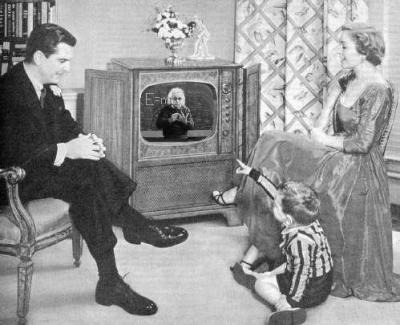
China has been all over the news recently -- mostly for free speech abuses. Even though the Chinese constitution officially offers protection of free speech, the Chinese government in Beijing has never done much to protect those rights, as evidenced by recent events in China and the U.S.
First off are accusations against internet giants Yahoo, Microsoft, AOL and Google for censuring the results of their search engines in China. Searches for democracy, Chinese dissidents or references to Tiananmen Square and Tibetan independence are filtered out of search results. Google alone was able to retain a warning telling users when results have been blocked. Google also refuses to provide Chinese users with email accounts and blogs, after reports that Yahoo helped Beijing locate two of its users who used Yahoo to post criticisms of the Chinese government. Both men are serving prison time in China for "uncovering state secrets."
Meanwhile, just yesterday, a group of Communist Party elders and scholars in China published a report criticizing Beijing for its heavy-handed control of the Chinese media. The report offered support for Freezing Point, a weekly supplement to the Communist Party published China Youth Daily newspaper, which was recently ordered to shut down by the Communist Party Propaganda Department. The report called on Chinese President Hu Jintao to stop unconstitutional and illegal repressions of free speech in the Chinese media.
"This constitutes a violation of the constitution," the report said. "In order to control public opinion, they have diminished freedom of speech, made blacklists, and conducted secret investigations. These deeds are ridiculous and rude and totally beyond the boundaries of law."
Officially, the Chinese government claims to only block pornographic or terrorist-related websites. Liu Zhengrong, of the Internet Affairs Bureau of the State Council Information Office, has been quoted as saying, "No one in China has been arrested simply because he or she said something on the Internet....After studying Internet legislation in the West, I've found we basically have identical legislative objectives and principles."
The BBC is quick to point out, however, that there website is still blocked in China.
Finally, dissident critics of the Chinese government have claimed harassment even outside the borders of China. Falun Gong, a spiritual movement extremely critical of Chinese religious and political oppression, says its members have been harassed in South Africa, Hong Kong, Australia, and now the United States.
Peter Yuan Li, a naturalized U.S. citizen, was beaten, tied up and blindfolded in his own home in suburban Atlanta by three Asian men. The men stole two of his laptops, phone and wallet, but left other valuables like his TV and camcorder. Li is a member of Falun Gong, and works for the Web site of the Falun Gong-affiliated newspaper The Epoch Times.
The Chinese government calls The Epoch Times "a propaganda machine of the evil cult," though it denies any involvement with the attack on Li's home. The FBI refuses to comment whether or not they suspect if Beijing was involved.
Just what we need. A little more government stonewalling.
I can't get enough!
Wednesday, February 15, 2006
China, China, Everywhere!
Posted by
jonny
at
5:41 PM
![]()
Subscribe to:
Post Comments (Atom)




No comments:
Post a Comment